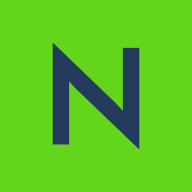


Find out in this report how the two All-Flash Storage solutions compare in terms of features, pricing, service and support, easy of deployment, and ROI.

| Company Size | Count |
|---|---|
| Small Business | 15 |
| Midsize Enterprise | 11 |
| Large Enterprise | 12 |
| Company Size | Count |
|---|---|
| Small Business | 3 |
| Midsize Enterprise | 8 |
| Large Enterprise | 24 |
| Company Size | Count |
|---|---|
| Large Enterprise | 8 |
Pure Storage FlashArray//X is the world’s first enterprise-class, all-NVMe flash storage array. It represents a new class of storage – shared accelerated storage, which is a term coined by Gartner – that delivers major breakthroughs in performance, simplicity, and consolidation.
Nasuni is a file data services enterprise focused on assisting firms with their digital transformation, global expansion, and information awareness. The Nasuni File Data Platform is a suite of cloud-based services designed to enhance user productivity, ensure business continuity, provide data intelligence, offer cloud options, and simplify global infrastructure. This platform and its auxiliary services are projected to replace conventional file infrastructure such as network attached storage (NAS), backup, and Disaster Recovery (DR), with an expandable cloud-scale solution. By storing file data in scalable cloud object storage from multiple providers, Nasuni positions itself as a cloud-native alternative for traditional NAS and file server infrastructure. Based in Boston, Massachusetts, USA, Nasuni serves sectors like manufacturing, construction, technology, oil and gas, financial services, and public sector worldwide, offering its services in more than 70 countries.
James J., IT Manager at a marketing services firm, says Nasuni’s management dashboard is helpful because he's able to view all of the different filers at once rather than check each one of them individually. He values the software’s security, reliability, good performance, helpful alerting, and responsive support.
According to a Server Engineering Services Lead at a mining and metals company, Nasuni offers good OR and DR capabilities, performs well, offers data security, and continuous file versioning helps recover from hardware failures.
The Managing Director of IT at a construction company appreciates Nasuni because it eliminates a lot of work that was previously done when managing backing up and restoring data files.
NetApp AFF A-Series is ideal for high-performance storage in enterprise environments. It efficiently handles large-scale data and provides reliable storage for virtual machines, databases, and critical applications.
NetApp AFF A-Series stands out for its speed, reliability, and robust data protection features. Users find its management easy and appreciate the efficiency in handling large workloads. Its seamless integration with cloud services and high data transfer speeds with reduced latency enhance its appeal. Scalability and support for various applications make it a top choice for enterprises. However, there is room for improvement in documentation, technical support response time, and third-party application integration.
What are the standout features of NetApp AFF A-Series?
What benefits should users look for?
NetApp AFF A-Series is implemented across industries to support virtual machines, large databases, and critical applications. It's particularly valuable in financial services for fast transaction processing, in healthcare for managing extensive patient records and imaging data, and in tech companies for supporting development environments and big data analytics.
We monitor all All-Flash Storage reviews to prevent fraudulent reviews and keep review quality high. We do not post reviews by company employees or direct competitors. We validate each review for authenticity via cross-reference with LinkedIn, and personal follow-up with the reviewer when necessary.